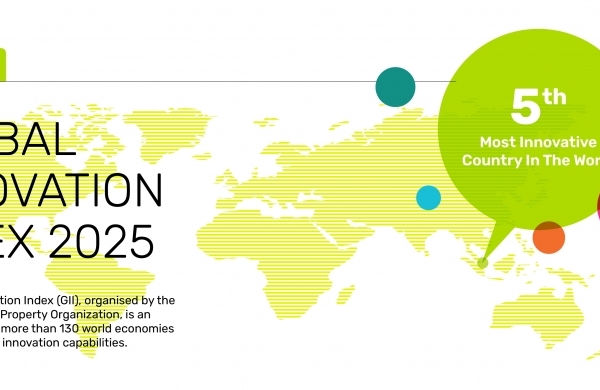Did not receive verification mail? Please confirm whether the mailbox is correct or not Re send mail

IPR Daily
- 2022-05-16 16:06:39
Companies' Transferral of Patents and Software Licences to Ireland Boosts Tax Take
The corporate tax take is poised to grow even larger as foreign multinationals keep transferring patents and software licences to Ireland.
Figures published by the Revenue Commissioner last week show a more than 50pc boost in the value of capital allowances claimed on intangible assets, such as patents, copyrights, trademarks and know-how, in 2020.
The total value of the assets against which the claims were made rose €48bn to €94.2bn.
The bulk of the claims came from "a small number of large companies", Revenue said, with foreign multinationals accounting for 89pc of total claims.
Companies claiming capital allowances on intangible assets accounted for 56pc of total tax payments in 2021, up from 47pc in 2020.
Capital allowances can only be claimed on assets that are based in Ireland.
The surge came despite an 80pc assets-to-income cap on the amount firms can claim on newly transferred intellectual property £¨IP£©£¬ introduced in 2017.
The Government expects the corporate tax take to "grow somewhat over the coming years" as a result of the changes, with the cap adding an extra €1bn to the corporate tax take in 2020.
That was the last year companies were able to avail of a tax loophole known as the "double Irish", which allowed them to funnel intellectual property income to low- or no-tax jurisdictions, via Ireland, legitimately avoiding tax.
Since then, some companies have decided to "onshore" assets in Ireland, while others - such as Google - have repatriated assets to the US.
"I think it's fair to say that you will see related levels of growth in the tax take associated with those asset transfers," Kevin McLoughlin, head of tax at EY Ireland, said.
"You could certainly see the tax take having the potential to increase for a while."
The corporate tax take has risen more than tenfold in the last decade, jumping 50pc in 2015, the year Apple moved around $250bn of intellectual property assets to Ireland, which contributed to record GDP growth of 26.5pc.
According to Revenue, the top 10 companies in Ireland made up 53pc, or €8.1bn, of net corporation tax receipts last year, up from 32pc in 2010.
"It's an underlying cause for concern that there is such a concentration of the receipts," said Kieran McQuinn, a research professor at the Economic and Social Research Institute (ESRI)
"There is a heavy windfall element that is unlikely to be sustained for the long run."
However, University College Cork economist Seamus Coffey said there is "nothing to suggest" the corporate tax take "will fall as rapidly as it has grown".
"The report shows clearly that the make-up of the top 10 corporate taxpayers actually changes year to year.
"There's some comfort in that in terms of the fear of concentration risk. The group of big contributors goes beyond just the top 10."
The Revenue figures also show the low take-up of the State's Knowledge Development Box (KDB) which was introduced in 2015 to encourage innovation.
It allows for a 6.25pc corporate tax rate on income earned from assets used for research and development (R&D).
Only 17 firms used the KDB in 2020, at a cost of €16.3m to the Exchequer. Former finance minister Michael Noonan had touted it as a game-changer, and estimated it would cost up to €50m a year. "There are very few claimants. That suggests qualified R&D is not happening here and it's not working as an incentive for R&D," Mr Coffey added.
Louise Kelly, a partner in Deloitte Ireland's corporate and international tax division, says the KDB is not a draw for foreign companies and tends to benefit more domestic firms because of restrictions on qualifying assets.
"The Knowledge Development Box has never been a very significant feature in whether companies choose to locate here," she said.
More important for attracting investment is a 25pc R&D tax credit, which Damien Flanagan, a partner in KPMG's tax practice, said "is often one of the deciding factors that can tip the scales in favour of Ireland".
The relief cost Revenue €658m in 2020, when it was used by 1,616 firms.
"Incentives are going to be a part of the tax landscape more than ever. There is going to be a lot of competition when it comes to incentives," Mr Flanagan said.
EY's Kevin McLoughlin said it was "the full package" on offer in Ireland, rather than tax, that would drive investment here. "Location of R&D is a really big decision for a company to make and therefore tax is never going to decide one way or the other," he said.
The Government is currently running a public consultation on the KDB and R&D tax credit in light of the recent international deal to tax large multinationals a minimum of 15pc on their global income. Companies that fail to pay the minimum will have to pay a top-up tax in each jurisdiction.
Source: independent.ie
Editor: IPR Daily-Selly
- I also said the two sentence
- Also you can enter 140words
 TOP IPR U.S. Lawyers 10 & Firms 10 Selection Officially Launched by IPR Daily
TOP IPR U.S. Lawyers 10 & Firms 10 Selection Officially Launched by IPR Daily WIPO Global Innovation Index 2025: China Enters Top 10
WIPO Global Innovation Index 2025: China Enters Top 10 Singapore ranks 5th in the 2025 Global Innovation Index; climbed two spots in Innovation Outputs
Singapore ranks 5th in the 2025 Global Innovation Index; climbed two spots in Innovation Outputs Federal Circuit lacks jurisdiction over award that doesn’t raise issue of patent law
Federal Circuit lacks jurisdiction over award that doesn’t raise issue of patent law


